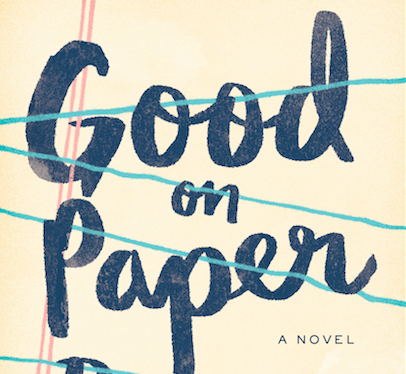Shira, bless her heart, is a good but underachieving translator. She usually translates the lesser-known works of lesser-known writers (her relationship with translation is ambivalent, to say the least); more often, she temps in New York City’s outer boroughs. But because of a ground-breaking translation she wrote in grad school of Dante’s La Vita Nuova (using a Buber-Rosenzweig leitwort approach), the Nobel Prize-winning poet Romei commissions her to translate his latest work, which riffs off La Vita Nuova in ways he promises to explain. As Shira begins to translate his Vita Quasi Nuova, however, she begins to suspect that Romei has another agenda, one that involves her personally and has nothing whatsoever to do with poetry…
Shira is not real, of course: she’s the narrator of my novel Good on Paper. To do justice to her work, I read books about literary translation, theories of translation, the practice of translation, especially from the Italian. I used as much detail as I plausibly could, so that Shira’s work could feel real, and her translation dilemmas—essential to the plot—would seem both urgent and specific. She talks—knowledgeably, I hope!—about terza rima and the “eleven-syllable Italian line.” Research because I couldn’t draw on my own experience. Like Shira, I spent my formative years in Italy, but her skill with the language far exceeds mine. Asked to read Italian novels in school, I labored; asked to translate something (anything) once in high school, I chose a Petrarchan sonnet, and did a serviceable job, though there was one line in the octave I just couldn’t get right. READ MORE…

